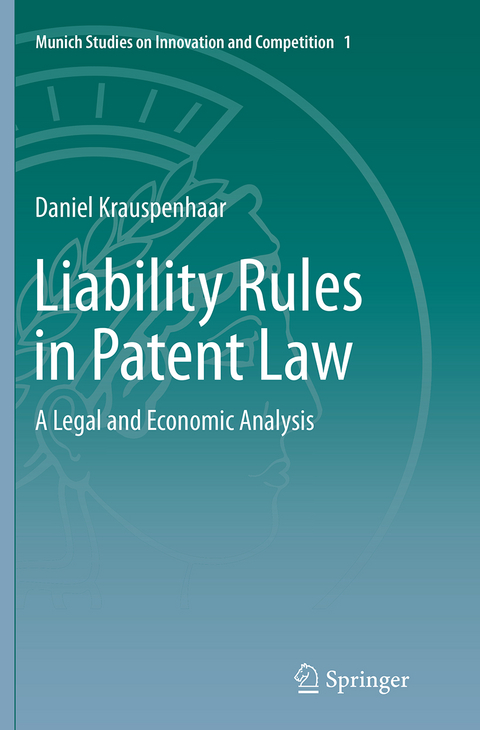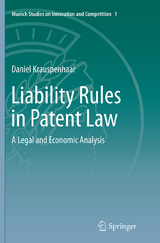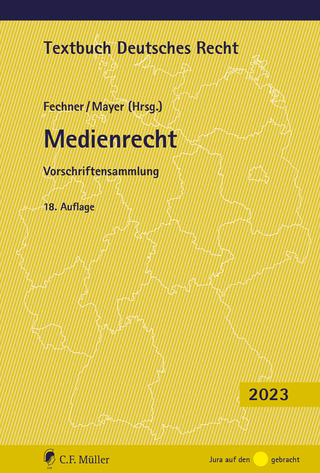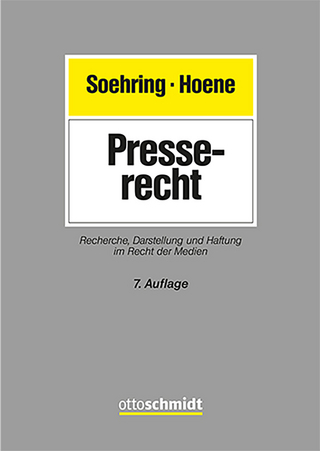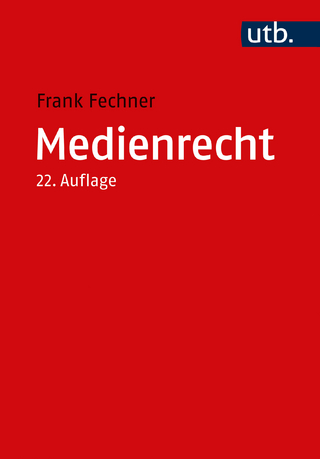Liability Rules in Patent Law
A Legal and Economic Analysis
Seiten
2016
|
1. Softcover reprint of the original 1st ed. 2015
Springer Berlin (Verlag)
978-3-662-52489-3 (ISBN)
Springer Berlin (Verlag)
978-3-662-52489-3 (ISBN)
In considering how to improve the patent system and enhance economic efficiency, this analysis deploys research from law, business administration, and economics to show how some patents are better protected by property law and others by liability legislation.
The primary purpose of a patent law system should be to enhance economic efficiency, in particular by providing incentives for making inventions. The conventional wisdom is that patents should therefore be strictly exclusive rights. Moreover, in practice patent owners are almost never forced to give up their right to exclude others and receive only a certain amount of remuneration with, for instance, compulsory licensing. Other economically interesting patent-law objectives, however, include the transfer and dissemination of knowledge. Mechanisms exist by which the patent owner decides if he or she would prefer exclusive or non-exclusive rights, for instance the opportunity to declare the willingness to license and create patent pools. But it is questionable whether these mechanisms are sufficient and efficient enough in view of the existence of patent trolls and other problems. This work challenges the conventional wisdom to a certain extent and makes proposals for improvements.
The primary purpose of a patent law system should be to enhance economic efficiency, in particular by providing incentives for making inventions. The conventional wisdom is that patents should therefore be strictly exclusive rights. Moreover, in practice patent owners are almost never forced to give up their right to exclude others and receive only a certain amount of remuneration with, for instance, compulsory licensing. Other economically interesting patent-law objectives, however, include the transfer and dissemination of knowledge. Mechanisms exist by which the patent owner decides if he or she would prefer exclusive or non-exclusive rights, for instance the opportunity to declare the willingness to license and create patent pools. But it is questionable whether these mechanisms are sufficient and efficient enough in view of the existence of patent trolls and other problems. This work challenges the conventional wisdom to a certain extent and makes proposals for improvements.
Introductory Remarks.- Overuse of Exclusivity in Patent Law.- Private Liability Rule Regimes.- Compulsory Liability Rule and Liability Rule by Default Regimes.- Overall View and Conclusion.
| Erscheinungsdatum | 29.08.2016 |
|---|---|
| Reihe/Serie | Munich Studies on Innovation and Competition |
| Zusatzinfo | XIX, 233 p. 10 illus. in color. |
| Verlagsort | Berlin |
| Sprache | englisch |
| Maße | 155 x 235 mm |
| Themenwelt | Recht / Steuern ► EU / Internationales Recht |
| Recht / Steuern ► Öffentliches Recht | |
| Recht / Steuern ► Privatrecht / Bürgerliches Recht ► Medienrecht | |
| Recht / Steuern ► Wirtschaftsrecht | |
| Wirtschaft ► Volkswirtschaftslehre | |
| Schlagworte | Company, commercial and competition law: general • Compulsory license • Exclusivity • International IT and Media Law, Intellectual Prope • Law and Criminology • law and economics • Laws of specific jurisdictions and specific areas • Liability rules • License of right • Property rules • Public international law: economic and trade |
| ISBN-10 | 3-662-52489-9 / 3662524899 |
| ISBN-13 | 978-3-662-52489-3 / 9783662524893 |
| Zustand | Neuware |
| Haben Sie eine Frage zum Produkt? |
Mehr entdecken
aus dem Bereich
aus dem Bereich
Recherche, Darstellung und Haftung im Recht der Medien
Buch | Hardcover (2024)
Verlag Dr. Otto Schmidt KG
129,00 €
Lehrbuch des gesamten Medienrechts unter besonderer Berücksichtigung …
Buch | Softcover (2023)
UTB (Verlag)
22,00 €
